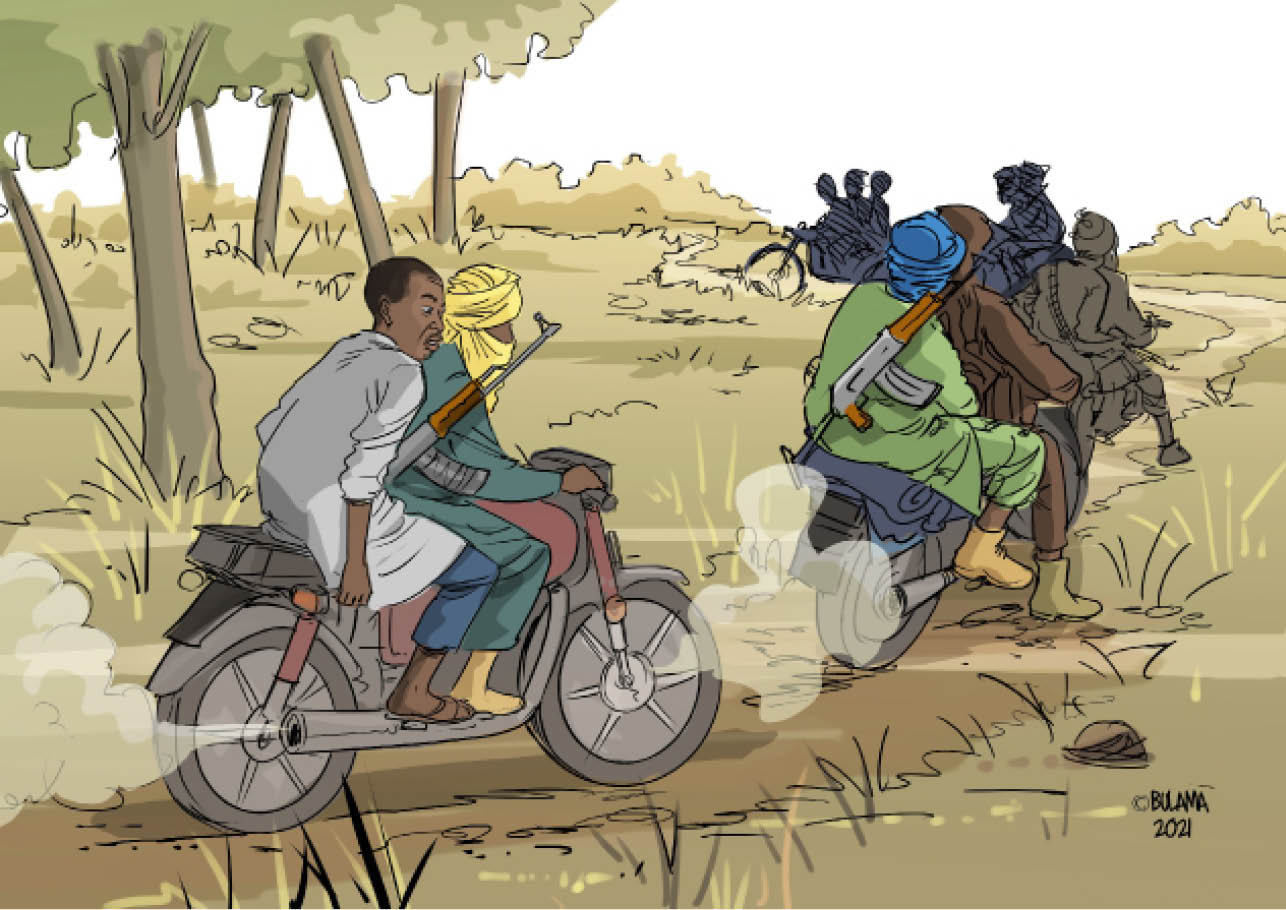Reactions trail court’s declaration of bandits as terrorists
The federal government Friday said it will use the opportunity of declaration of bandits as terrorists to “crush banditry” in the count…

The federal government Friday said it will use the opportunity of declaration of bandits as terrorists to “crush banditry” in the country.
Reacting to a court order issued by Justice Taiwo Taiwo of the Federal High Court, Abuja, the government through the Attorney General of Federation and Minister of Justice, Abubakar Malami (SAN), said with the court’s declaration, the government had taken a bold step to deal ruthlessly with all terrorist groups and their sponsors in an effort to bring lasting solutions to the myriad of security challenges in the country.
- Jailbreak: 371 kidnappers escape Nigerian prisons in 6 months
- Mixed reactions as NFF moves to hire another foreign coach for Super Eagles
But experts and analysts spoken to Friday expressed low impression of the action taken, saying it would change little or nothing in the effort to contain the violence. Some of them expressed fears that lack of clarity in defining the bandits and identification of arrowheads may breed confusion and escalate ethnic profiling.
Justice Taiwo gave the nod for the government’s quest to declare the rampaging gunmen as terrorists while ruling on an ex parte motion filed by the federal government against the activities of what the government called “Yan Bindiga and Yan Ta’adda” bandits’ groups.
The Director of Public Prosecution (DPP), Mohammed Abubakar, who filed the motion ex-parte, said President Muhammadu Buhari gave approval for the proscription of the two groups and other terrorist groups in the country.
In its supporting affidavits, the federal government said security reports had confirmed that the bandits were responsible for the killings, abductions, rapes, kidnappings and related acts of criminality in the North East, North Central and other parts of the country.
Delivering the ruling, the judge declared the activities of bandits as “acts of terrorism and illegality”.
He also made an order restraining any person or group of persons from participating in any manner whatsoever, in any form of activities involving or concerning the prosecution of the collective intention or otherwise of the Yan Bindiga group and the Yan Ta’adda group under any other name or platform however called or described.
The court asked the federal government to publish the proscription order in the official gazette and two national dailies.
Daily Trust had, in a front page comment on July 26, 2021 asked the government to declare activities of the ravenous bandits as terrorism.
But Kaduna-based Islamic cleric who has initiated dialogue with the bandits in the past, Sheik Ahmad Gumi, said yesterday that the declaration “will not change anything” in the conflict’s dynamics.
In a statement released on his behalf by a media consultant, Malam Tukur Mamu in Kaduna, Gumi said by taking the decision, the government succumbed “media blackmail by a section of the country”.
He said the declaration “will not have any practical value because even before the declaration they are being fought and treated as terrorists”.
In her reaction, the Director of the Centre for Democracy and Development (CDD), Dr Idayat Hassan, picked holes with the use of the terms; “Yan Bindiga” and “Yan Ta’adda” which, she said, lacked the specificity necessary to identify the criminal elements.
She also said that the open-ended categorising erred because it does not address fundamental issues of transitional justice which, she said, was among the root causes of the conflict.
She said, in securing the order, the federal government ought to identify the kingpins and their areas of operations since all they arrowheads and their locations were well known.
In his comment, a retired brigadier-general, Sani Kuka-Sheka Usman, said the order “will leave nobody in doubt as to the status of the criminals” as it now clears any perceived hindrance in tackling the problem.
A researcher on the security challenge, Dr Murtala Ahmed Rufa’i, expressed fears that the lack of definition of may heightened incidents of ethnic profiling and targeting of every Fulani person, especially in the southern part of the country.
“If we go by this, by extension any Fulani in the forest is a terrorist because they have no difference other than the guns which even the armed men drop when coming out of the bush. With the armed man keeping away his guns and coming into towns he is no different from any other Fulani and therefore any other Fulani can be mistaken for him,” he said.
He said, the confusion in the definition has also not addressed other armed men who wield weapons even more sophisticated than AK-47 and AK-49 rifles, in the name of self-protection or fighting against the bandits.
Rufa’i called for a more sober approach in order to distil criminals from others who carry arms either due to grievances or to protect themselves from virulent attackers.
